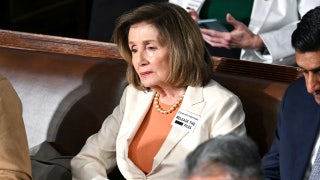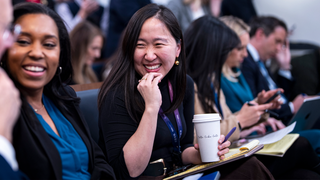Laura Ingraham: Everything that Chinese interests do in the U.S. is approved by the CCP
Lincoln Network policy technologist Lars Erik Schonander and senior fellow Geoffrey Cain discuss China's goal in purchasing U.S. farmland.
The Wall Street Journal editorial board published a piece that slammed the United Nation Human Rights Council for voting against discussing the Chinese government's human rights abuses against Uyghur Muslims, an ethnic minority in China.
"If pathological optimists still think the U.N. Human Rights Council cares about human rights, they might want to note events last week," the editors argued.
"A motion was made in Geneva to debate China’s abuses against the Uyghurs in Xinjiang province, and the council voted 19-17 not even to discuss it," they continued.
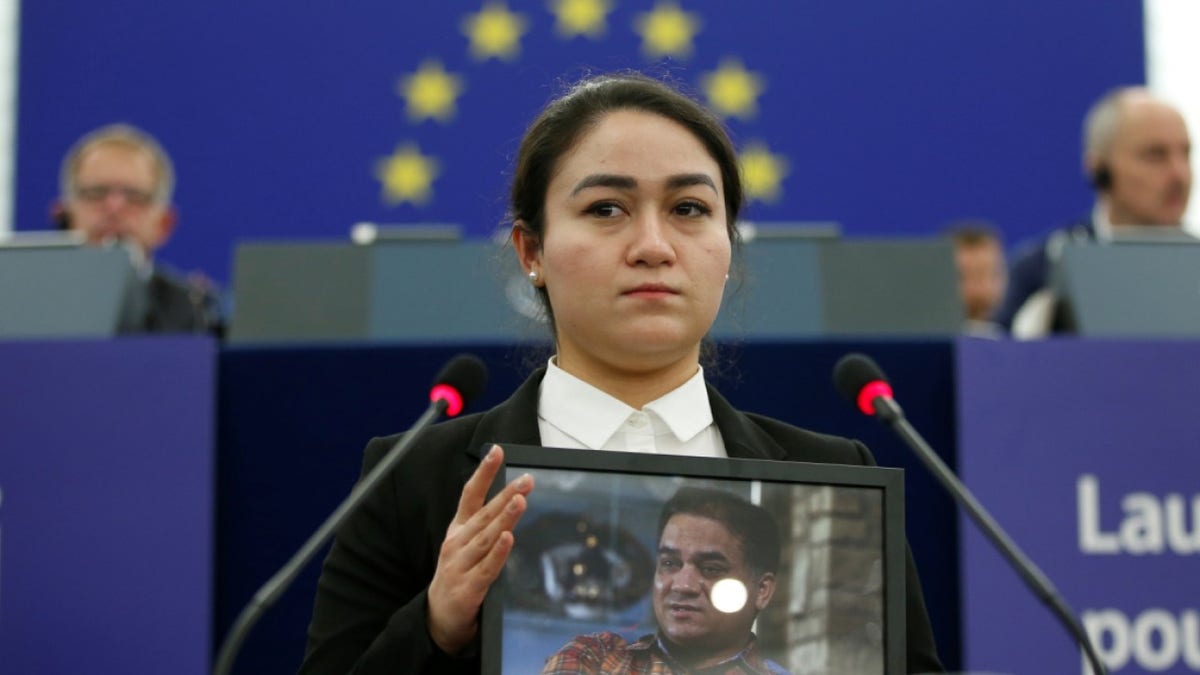
Jewher Ilham, daughter of Ilham Tohti, Uyghur economist and human rights activist, holds a portrait her father during the award ceremony for his 2019 European Parliament's Sakharov human rights prize at the European Parliament in Strasbourg, eastern France, on December 18, 2019. ((Photo by FREDERICK FLORIN / AFP) (Photo by FREDERICK FLORIN/AFP via Getty Images))
The editors called Cuba and Venezuela "regular lackeys," as well as other countries that simply were afraid to offend China, such as the small neighboring country of Nepal and others.
"Siding with China against the motion were regular lackeys such as Cuba and Venezuela, as well as countries such as Nepal, Indonesia and Pakistan, Qatar and the United Arab Emirates that don’t want to offend China or are xon the hook as part of its Belt and Road Initiative," they wrote.
The editors said the last four countries are Muslim countries refusing to discuss the persecution of Muslims by China.
US MARINES STORM BEACH NEAR DISPUTED REEF IN SOUTH CHINA SEA JOINT MILITARY DRILLS
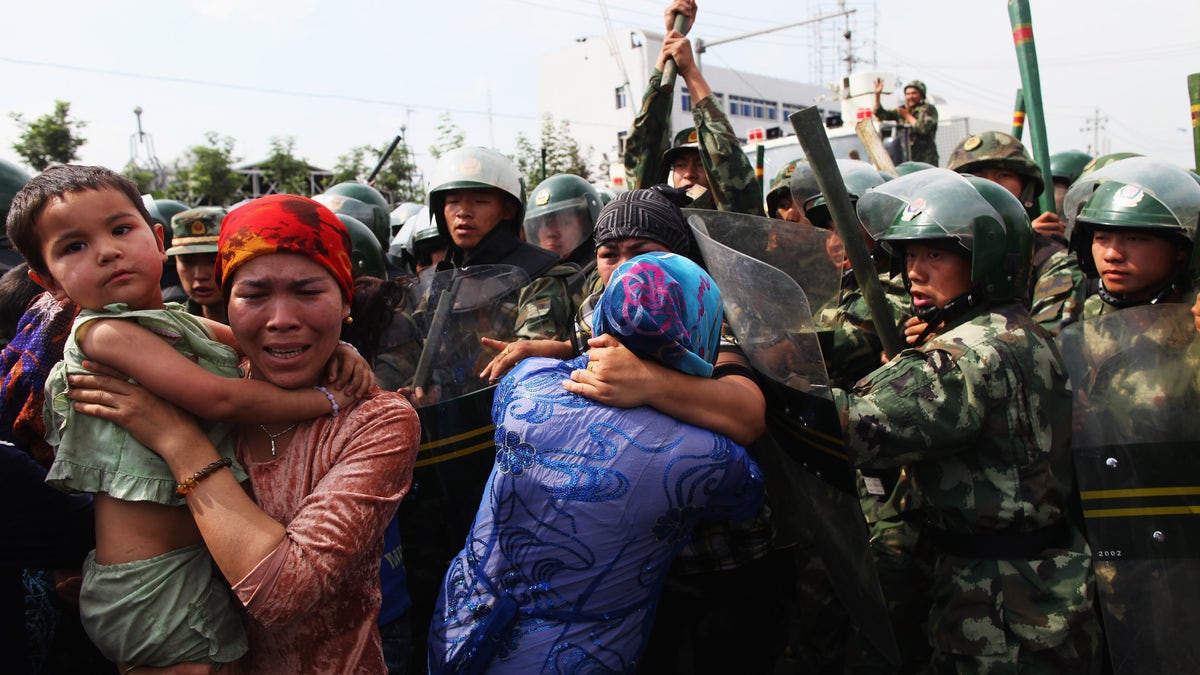
URUMQI, CHINA - JULY 07: Chinese policemen push Uighur women who are protesting at a street on July 7, 2009, in Urumqi, the capital of Xinjiang Uighur autonomous region, China. (Photo by Guang Niu/Getty Images)
The editors noted an August report by the UN High Commissioner on Human Rights that included interviews with former Uyghur detainees.
"A consistent theme was description of constant hunger and, consequently, significant to severe weight loss during their periods in the facilities," the report found.
"Almost all interviewees described either injections, pills or both being administered regularly," it continued.
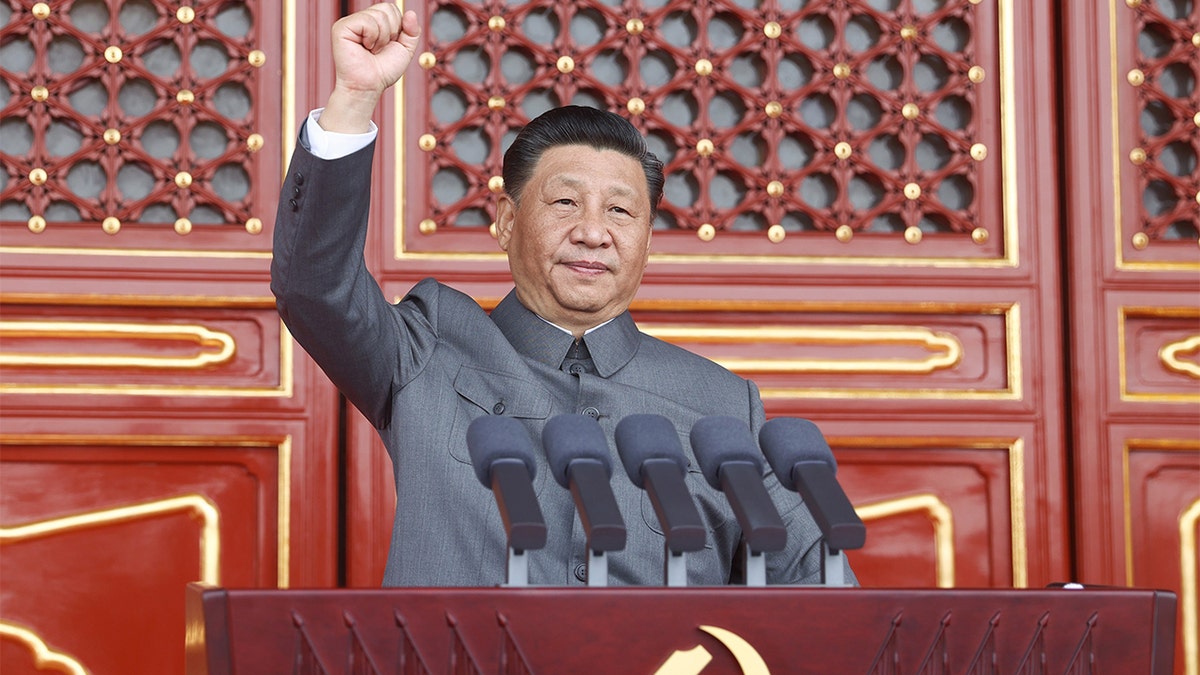
Xi Jinping, general secretary of the Communist Party of China CPC Central Committee, Chinese president and chairman of the Central Military Commission, delivers an important speech at a ceremony marking the 100th anniversary of the founding of the CPC in Beijing, capital of China, July 1, 2021. (Photo by Ju Peng/Xinhua via Getty Images) (Ju Peng/Xinhua via Getty Images)
"Some also spoke of various forms of sexual violence, including some instances of rape," the UN report also found. This is the report that the UN Human Rights Council voted against discussing.
"[W]hat a disgrace. Everyone knows the U.N. Human Rights Council is a sinkhole of moral equivalence. But if it can’t pass a motion merely to open discussion on China’s abuses in Xinjiang, there is no reason for it to exist, or for the United States to continue to be a member," the editors wrote.
The Trump administration withdraw the United States from the UN Human Rights Council for similar reasons in 2018. At the time, Nikki Haley, former U.S. ambassador to the United Nations, said "if the Human Rights Council is going to attack countries that uphold human rights and shield countries that abuse human rights, then America should not provide it with any credibility."
The administration's decision to withdraw was sparked by a vote by the council condemning Israel while turning a blind eye to the misdeeds of dictators and autocrats around the world.
CLICK HERE TO GET THE FOX NEWS APP
President Biden re-entered the U.S. into the UN Human Rights Council late last year despite the longstanding criticisms against it.










